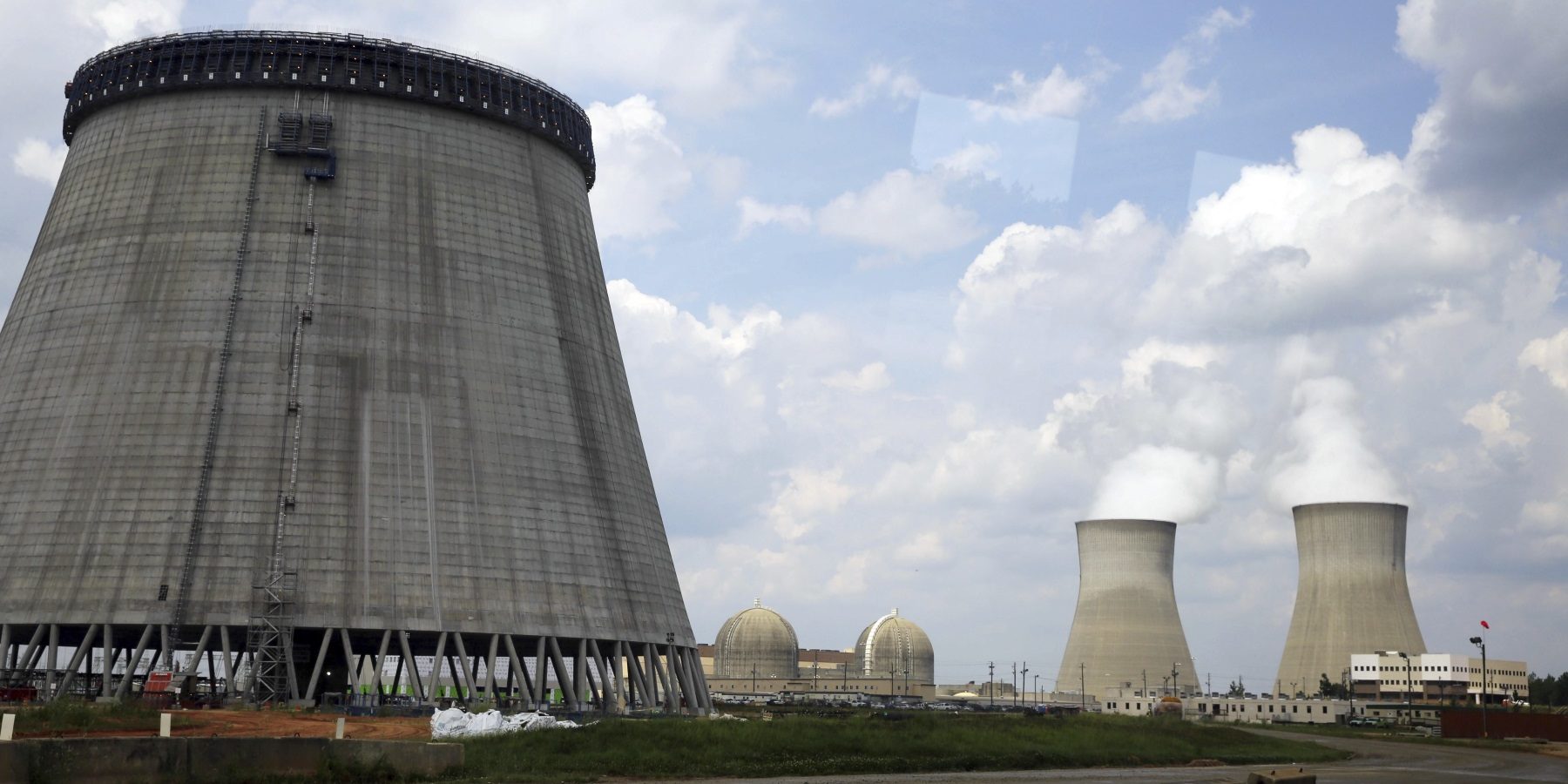Sides Disagree Over Bill To Remove Vote Requirement For Dalton Utilities, Link To Vogtle

Opponents say the intention of the Georgia Senate bill is to undercut the voice of Dalton voters when it comes to any debt needed to cover Plant Vogtle costs. Supporters say the bill is about helping the utility company stay competitive and respond quickly in times of economic trouble, not because of Plant Vogtle.
John Bazemore / Associated Press file
A Georgia Senate bill would remove a restriction currently on municipal utilities, like Dalton Utilities, that requires a referendum when the company asks for revenue bonds to cover electric power transmission costs.
The proposed exemption would only apply to Dalton.
Opponents say the intention of the bill is to undercut the voice of Dalton voters when it comes to any debt needed to cover Plant Vogtle costs. That’s the nuclear power plant under construction near Augusta, which Dalton Utilities is helping pay for.
The company is one of four owners of the plant, with 1.6 percent ownership. Georgia Power has the main ownership stake at about 46 percent and is currently managing construction of Vogtle.
Supporters say the bill is about helping the utility company stay competitive and respond quickly in times of economic trouble, not because of Plant Vogtle.
“The way I look at that, my responsibility as the CEO of the utility is to maintain optionality,” said Tom Bundros, Dalton Utilities’ chief executive.
While the utility has been funding costs like Vogtle internally, Bundros said he’s aware that about 70 percent of his revenue comes from the floor covering industry in Dalton, which is highly susceptible to the state of the economy. Meaning, Dalton Utilities is also vulnerable, he said.
“Like any prudent manager would,” he said. “I want to make sure we’re prepared for possible downturns.”
“I don’t see that Vogtle has anything to do with this,” said state Sen. Chuck Payne, a Republican who sponsored the bill.
Mark Woodall is legislative chair of the Georgia Sierra Club and testified against the bill in the Senate Regulated Industries committee meeting Thursday.
“What this bill does is take away the right of the people of Dalton to vote on taking on more utility debt,” he said.
He argued it’s all about helping Dalton respond to any future cost increases at Vogtle without public feedback.
“Taking away the right of the people of Dalton to vote, that’s not going to solve our issues with Vogtle,” he said.
Dennis Mock, the mayor of Dalton, said he and the City Council support the bill.
While it “might have something to do with Vogtle,” he said, the reason he supports the legislation is that it “levels the playing field with the other utilities we compete with,” like Georgia Power, for example.
“I think it was probably an old political move to keep Dalton Utilities at bay and let everybody else have a competitive advantage around us,” he said, and removing it would help the utility progress.
The proposed new system would require the approval of the mayor, City Council and Dalton Utilities Board, whose members are appointed by the mayor and council. A superior court judge would also have to validate the bond issuance.
“Referendums are expensive, and they take a lot of time,” Mock said. “We, the mayor and council, answer to the public and, therefore, Dalton Utilities is accountable to the public. That’s democracy in action.”
Mock said he would feel differently if these were general obligation bonds, as opposed to revenue bonds. The former means that taxpayers pledge themselves to raise taxes to pay them off.
“Revenue bonds do not have a tax pledge,” Bundros said. “Nor do I pledge the assets of the utility. Revenue bonds can only look to the revenues from the projects that are being financed as securities of the debt service.”
Ed Painter is a Dalton businessman who testified against similar legislation last year that did not pass the House. He said this is “obviously about Vogtle.”
If there were to be a referendum, he said, “the environmentalists would no doubt rally in Dalton to oppose a referendum to give money to Vogtle. And that would be difficult in a town like ours.”








